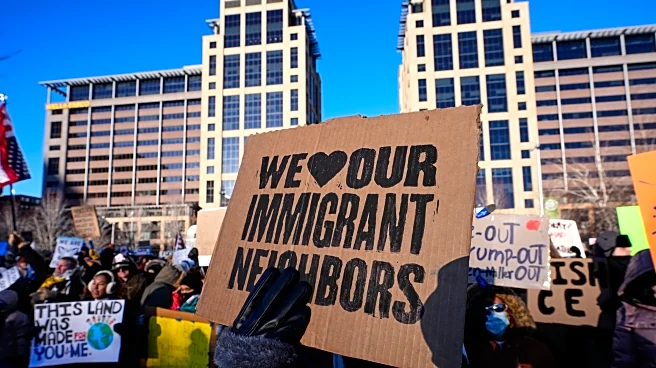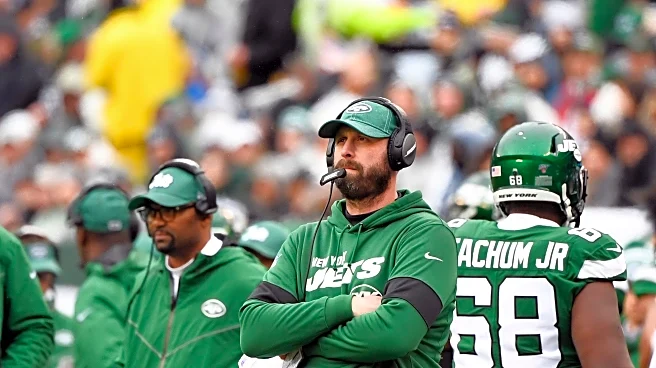Rapid Read • 7 min read
Congress is facing another potential government shutdown as Republicans in the House struggle to agree on a plan to fund federal agencies beyond the October 1 deadline. House Speaker Kevin McCarthy is pushing for increased border security funding in any stopgap measure, while Senate Majority Leader Chuck Schumer is advancing a short-term funding measure with bipartisan support. The threat of a shutdown has become more frequent, with recent funding lapses causing significant economic losses and impacting hundreds of thousands of federal workers.
AD
A government shutdown can have widespread effects on federal operations and the economy. It disrupts services, furloughs employees, and can lead to billions in economic losses. The uncertainty surrounding shutdowns can affect consumer confidence and spending, further impacting economic growth. Political leaders must navigate complex budget negotiations to prevent disruptions and ensure government functions continue smoothly.
If Congress fails to pass a funding bill, a shutdown could occur, affecting federal employees and services. Political leaders may need to negotiate to reach a consensus on budget allocations to prevent disruptions. The ongoing budgetary conflicts highlight the need for effective communication and compromise between Congress and the President to ensure government operations continue smoothly.
Shutdowns reflect deeper political and ideological divides within the government, often used as bargaining tools in budget negotiations. They highlight the challenges of managing a large and complex government system where different branches must cooperate to function effectively. The recurring nature of shutdowns suggests a need for reform in the budgetary process to prevent future disruptions.
AD
More Stories You Might Enjoy












